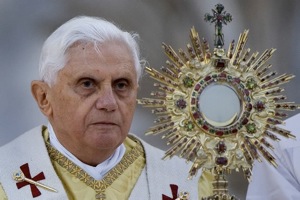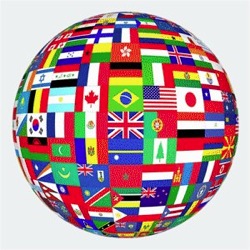My flesh is real food and my blood is real drink. (John 6:55)

Transubstantion is a word that is probably widely known and widely not understood. I guess that most Catholics have heard the word, but would struggle to spell it, let alone explain it. Many non-Catholics too, would know it, probably as something which defines what is wrong about Catholicism, though I guess that they too would be unable to explain quite why. And I expect mist would have sone sense that it relates to what the Catholic church teaches about the Mass, abs the change of the bread and wine into Jesus' body and blood, but that might be as far as it goes.
Part of the difficulty is that the idea of Transubstantiation is based in a particular philosophical understanding of the world, which many would see not only to be highly complex, but also unfashionable in the philosophical world. It doesn't fit easily with most modern philosophy, so clever philosophers and theologians aren't entirely comfortable with it.
But this doesn't mean it isn't important. This doesn't mean it is not true. It is much more baby than bath water, and should not be thrown out, overlooked or forgotten.
Transubstantiation is a way of trying to explain how something extraordinary happens. It is a truth which is spoken of frequently in scripture: this is my body, this is my blood; my flesh is real food, my blood is real drink; I am the Bread of Life. It is rooted in those familiar words, The Word became flesh and dwelt amongst us. It refers to the daily miracle of the Mass, but more than that it refers to the constant connection between heaven and earth, the presence of God on our lives.
You see, Transubstantiation is not some strange Catholic oddity, but the very heart of Christianity. It is about God the creator, entering into his creation, it is about the Divine life touching our human lives, it is about Grace giving us strength and comfort, it is about Love alive in our midst.
Philosophy may be helpful, for those who need it, to explain how this happens, but for us who live in Faith, this truth is just a fact of life.




 Why are you men looking into the sky? (Acts 1:11)
Why are you men looking into the sky? (Acts 1:11)